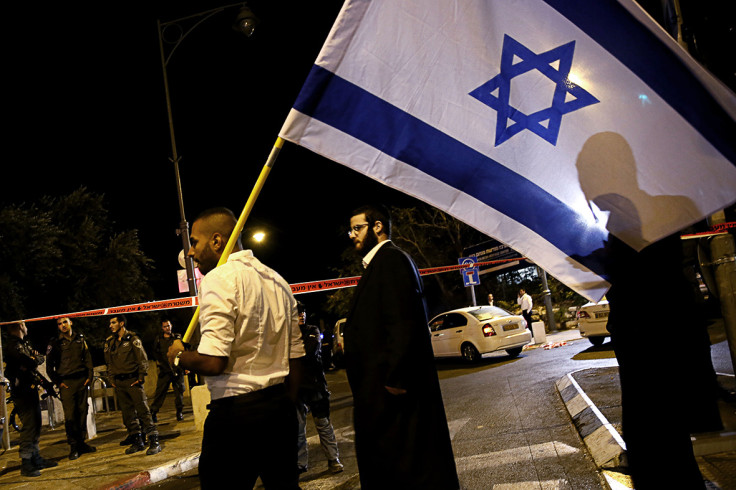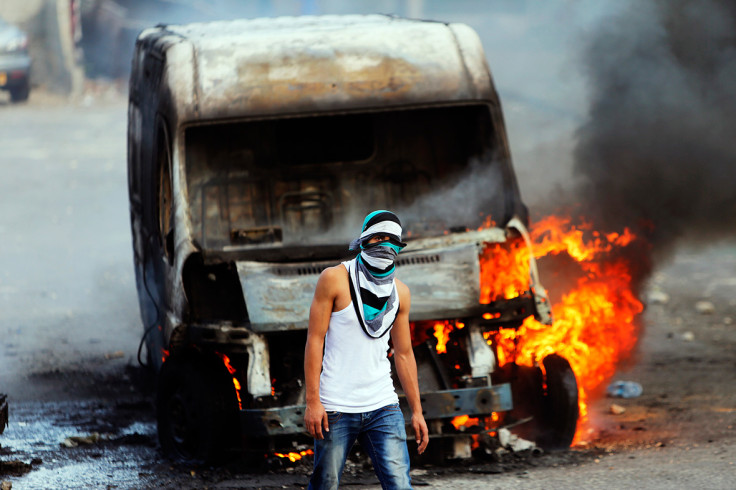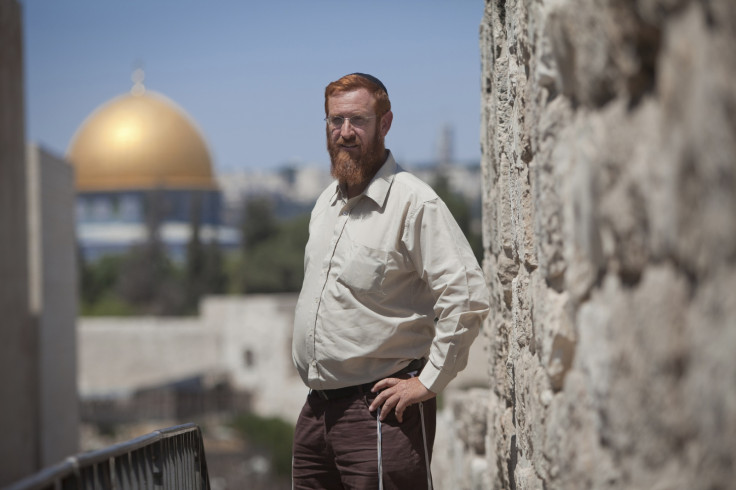Yehuda Glick Shooting: Jewish Jerusalem on Edge as Palestinian Rage Grows
About a month ago a political hack here wryly commented that, in Jerusalem, half the city was rioting and the other half didn't know.
In truth, even before the assassination attempt last night, the writing had been on the wall. On 5 August a Palestinian deliberately drove his bulldozer into a number of pedestrians, killing a young man, and injuring six others. On the same day, in a second incident, a soldier was shot in the stomach by an unknown assailant who escaped on a moped in the north of the city.

Last week saw another vehicular terror attack. A local Palestinian rammed his car into a crowd of commuters waiting at a stop on the light railway, killing a three-month-old baby and a young woman, before being shot himself. Another men has subsequently died from wounds sustained in the attack.
On the eastern side of the city, there has been significant rioting and public disturbances on a regular basis for the last three months, following the horrific incident when an Arab youth was abducted and murdered in revenge for the killing of three Israeli teens in the West Bank.
Particularly prevalent has been the constant disruptions to the light railway that includes stations in Arab neighbourhoods on its way to the Jewish neighbourhoods in the very north of the city. It is symbolic that the light railway has come under attack, since it is an expensive, trendy, modern public service that was aimed to serve all sectors of society. There have been numerous cases of carriages attacked, windows smashed in, platforms vandalised.
Also, inside the Arab neighbourhoods, there is the return of the old-new phenomenon of youths throwing stones as well as Molotov cocktails. Legislation is being prepared to try and deter the stone throwers; to imprison those who endanger lives and, if underage, fine their parents.

Despite the considerable unrest, due to a concerted effort by the police and security services to reduce tension and exercise restraint, the rioting has remained localised to Arab neighbourhoods in East Jerusalem, and so those in the West of the city could remain, theoretically, unaware.
Last night's shooting, which happened at a well-known venue in a relatively central Jewish area, is a significant blow to this sense of containment. It is also noteworthy as the victim, Yehuda Glick, is inextricably associated with his activity on the Temple Mount, which has been a regular flashpoint for violence between Palestinian youths and Israeli security forces. It is the holiest site in the world for Jews, being where the Jewish Temple was located, and today is the site of the al-Aqsa Mosque and Dome of the Rock, holy to Muslims.
Despite the centrality of the site for Jews, after capturing the Old City and reuniting Jerusalem in 1967, Israel left the administration of the Temple Mount under the authority of the Islamic Waqf religious council. The status quo agreement allows a small number of non-Muslims to visit the Temple Mount (during restricted hours in between Muslim prayers), but only Muslims are allowed to pray there.

Glick and others have campaigned for greater Jewish access to the site. However the Israeli government has repeatedly insisted it has no intention of altering the status quo. Two weeks ago, Palestinian Authority President Mahmoud Abbas raised the ante, claiming 'settlers' should be barred from the complex 'using any means,' and called on Palestinians to prevent Jews from "desecrating the Temple Mount."
These comments have been seen by various Israeli leaders as unhelpful and inciting violence. They follow a regular pattern of Abbas and other Palestinian leaders making incendiary and unfounded accusations about Israeli intentions, which serve a domestic political purpose
Overall Jerusalem remains a patchwork of interconnected neighbourhoods. Jews – modern-Orthodox and secular, left and right-wing, rich and poor – share a third of the city. Another third is Haredi (ultra-Orthodox Jews) themselves divided into different clans and Rabbinic allegiances. The final third is Arab; both Christian and Muslim with a range of loyalties across the political spectrum.
Despite the intoxicating mix of challenges and contradictions, and even at a tense time like this, the overwhelming majority of Jerusalemites across the city want to live together in peace. Normal, cordial relations – every day interaction between Jews and Arabs – continues and can be seen in every shared space: the shopping malls, the banks, the public transport. Jews and Arabs share office space, work for the same companies, and enjoy the same social security. Many Arabs in East Jerusalem are against the violence of hotheads, even if they are frustrated by the political situation.
It is worth recalling Jerusalemites are a stoic breed. Just over a decade ago, we withstood the brunt of the second intifada where buses and restaurants were constantly targeted by suicide bombers and hundreds were killed. We are all hoping we are never challenged like that again.
Richard Pater is a political analyst based in Jerusalem. Originally from London, he has served in the IDF reserves for the last ten years. Richard is the Director of the Britain Israel Communications and Research Centre (BICOM) in Israel.
© Copyright IBTimes 2025. All rights reserved.




















